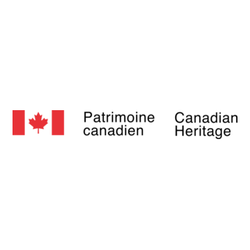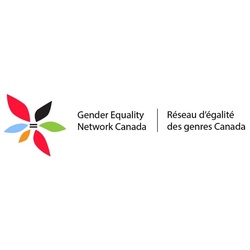
Digital Citizen Contribution Program (DCCP)
At a glance
- Maximum amount : 380,000 $
- Open Date : November 1, 2023
- Closing date : November 28, 2023
- Information and cultural industries
- Professional, scientific and technical services
- Educational services
- Health care and social assistance
- Public administration
- Canada
- Non-profit
- Public or Parapublic institution
- For-profit business
- Sole proprietorship
- All revenue ranges
- All organization sizes
- Indigenous Peoples
- 2SLGBTQI+
- Canadians
- Higher Education
- Other Education
- Research
- Economic, Social and Community Development
- Civic and Advocacy Organizations
- Children and Youth Organizations
- Diversity and Inclusion
- General public
- Children & youth
- Seniors
- Indigenous peoples
- Women & girls
- LGBTQ+ community
- Minority groups
- All structures
- Municipal
- Provincial
- National
Overview
Get financial assistance for non-commercial research projects that help build citizen resilience against online disinformation and threats. Funding is based on having clear objectives, measurable results and meeting evaluation criteria.
Activities funded
The Digital Citizen Contribution Program supports a variety of projects aiming to counter disinformation and related harms, enhance digital literacy, and promote online safety. Eligible activities focus on the development of tools, research, and capacity building for diverse communities in Canada.
- Developing and publishing tools for digital media and civic literacy outside of educational institutions or for seniors.
- Creating tools to identify content generated by bots and artificial intelligence.
- Initiatives to prevent and address technology-facilitated violence against vulnerable communities.
- Resources to help children and parents in Canada address and prevent cyberbullying.
- Building technical capacity among NGOs addressing misinformation, hate speech, and cyberbullying.
- Developing resilience against misinformation stemming from foreign governments targeting Canadians.
- Conducting research or evaluations on tools or interventions related to the above priorities.
Eligibility
The eligibility criteria for this grant are as follows:
- A national, provincial, territorial, municipal, Indigenous, community or professional organization, society or association which has voluntarily associated itself for a not-for-profit purpose, and which has the mandate to represent its membership or community
- A not-for-profit organization, including non-governmental or umbrella organizations, non-profit corporations, community groups, regulatory bodies or apprenticeship authorities, or associations serving the private sector
- A university or educational institution
- An individual researcher, acting in his or her personal capacity
- A research institution with an established record in relevant field(s), intending to undertake work in a Canadian context
- A for-profit Canadian and Canadian-owned institution with a record of developing and delivering programming, and performing research or related activities relevant to the goals of Canadian Heritage’s Digital Citizen Initiative, provided that the nature and the intent of the activity is non-commercial
Who is eligible?
Eligible types of organizations for this grant include national, provincial, territorial, municipal, Indigenous, community or professional organizations, not-for-profit organizations, universities or educational institutions, individual researchers, research institutions with an established record, and for-profit Canadian institutions with a non-commercial nature and intent.
- National, provincial, territorial, municipal, Indigenous, community, or professional organizations
- Not-for-profit organizations
- Universities or educational institutions
- Individual researchers
- Research institutions with an established record
- For-profit Canadian institutions with a non-commercial nature and intent
Who is not eligible
Some types of companies are not eligible for this grant. Federal institutions that receive an annual appropriation from Parliament are not eligible for funding under the Program.
- Federal institutions that receive an annual appropriation from Parliament
Eligible expenses
Eligible expenses for this grant include project-related costs such as equipment, materials, research activities, personnel salaries, travel expenses, and other direct project expenses. Indirect costs may also be eligible, subject to approval.
- Equipment
- Materials
- Research activities
- Personnel salaries
- Travel expenses
- Other direct project expenses
- Indirect costs (subject to approval)
Eligible geographic areas
This grant program does not specify eligible geographical areas within the provided context. Instead, it targets various organizations and individuals across Canada to participate in research and citizen-focused activities.
Selection criteria
Evaluation and selection criteria for this grant include:
- Alignment with the call priorities and objectives of the Digital Citizen Contribution Program
- Demonstrated capacity and resources to complete the proposed project
- Feasibility and soundness of the project work plan and budget
- Potential impact and relevance of the project in addressing online disinformation and related harms in Canada
- Diversity and inclusivity considerations in project design and implementation
How to apply
Contact the Digital Citizen Contribution Program of the Department of Canadian Heritage to request an application package, including the application guidelines and the general application form.
Read the application guidelines in their entirety before completing your application.
Submit your completed application by email to icn-dci@pch.gc.ca.
Ensure that you meet all the eligibility requirements and submit a complete application package to be considered for funding. This includes providing a signed and completed General Application Form, a balanced itemized budget for the project, a project workplan, sub-components of the Application Form, proof of legal status and signing authority, and recent financial statements.
Frequently Asked Questions about the Digital Citizen Contribution Program (DCCP) Program
What is the Digital Citizen Contribution Program (DCCP)?
How much funding can be received?
What is the deadline to apply?
Who is eligible for the Digital Citizen Contribution Program (DCCP) program?
What expenses are eligible under Digital Citizen Contribution Program (DCCP)?
Where is the Digital Citizen Contribution Program (DCCP) available?
Is the Digital Citizen Contribution Program (DCCP) a grant, loan, or tax credit?
More programs like this

Industrial Research Assistance Program (IRAP) – AI Assist
National Research Council Canada (NRC)
Industrial Research Assistance Program (IRAP) — Youth Employment Program (YEP)
National Research Council Canada (NRC)
Mitacs Accelerate
Mitacs
ISED — Artificial intelligence (AI)
Innovation, Science and Economic Development Canada (ISED)
Global Innovation Clusters
Innovation Canada
IP for Business
Canadian Intellectual Property Office (CIPO)
ECO Canada — Student Work Placement Program
ECO Canada
Equality for Sex, Sexual Orientation, Gender Identity and Expression Program
Women and Gender Equality Canada (WAGE)
Crime Prevention Action Fund (CPAF)
Public Safety Canada (PSC)